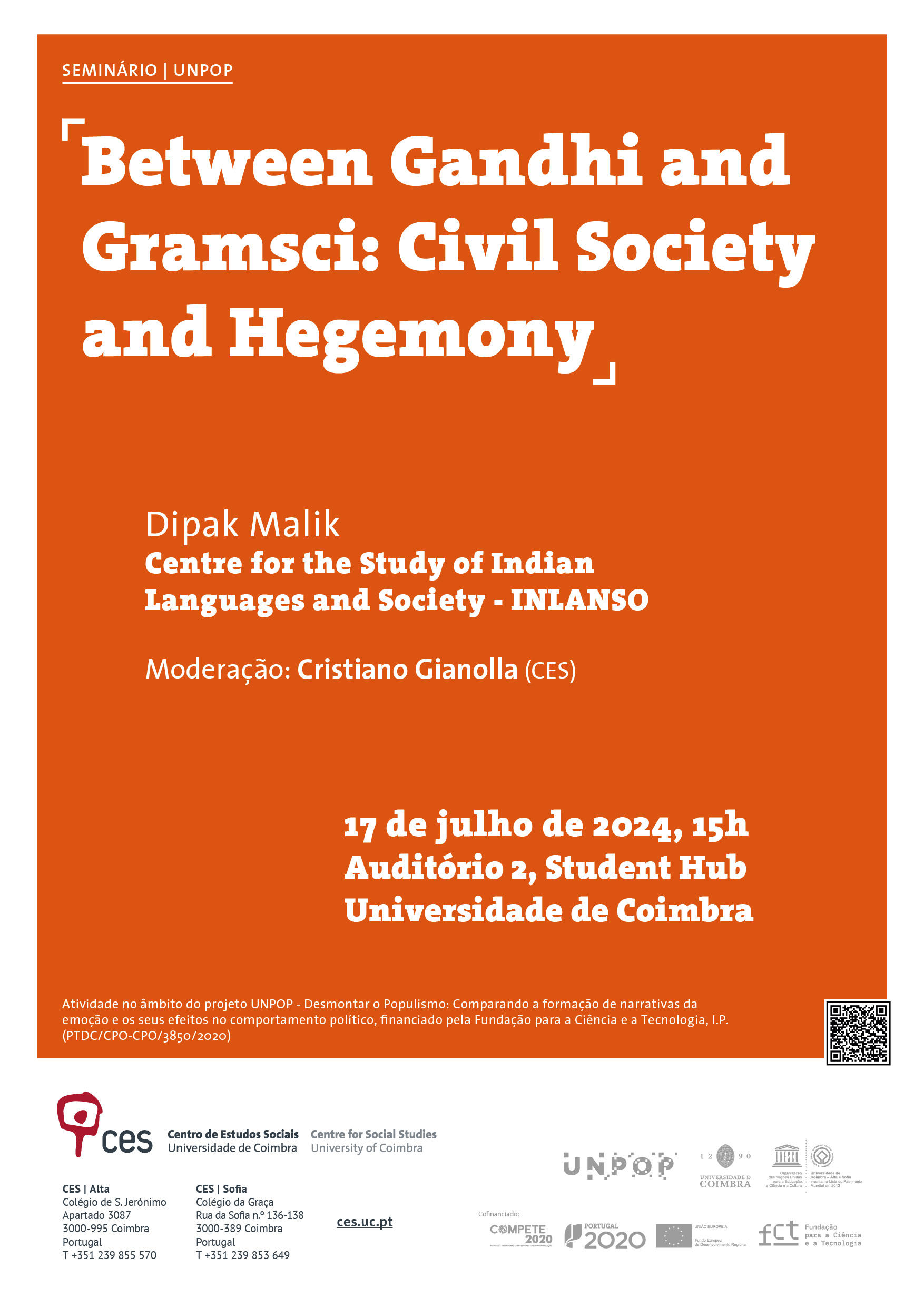ITM - Inter-Thematic group on Migrations
Seminar
Between Gandhi and Gramsci: Civil Society and Hegemony
Dipak Malik (Centre for the Study of Indian Languages and Society - INLANSO)
July 17, 2024, 15h00
Auditorium 2, Student Hub | University of Coimbra
The talk will be centred around Gandhian practices in the light of the Gramscian theoretical perspective. The two concepts of civil society and hegemony will be the main focus from the Gramscian perspective examining the anti-colonial struggle in India led by Mahatma Gandhi. The innovative application of a civil society based confrontation, with colonial super structure of governance and social formations as well as quasi-hegemony that was formed on national level along with some other regional variants even outside the orbit of Mahatma's movement and the current crescendo of semi-fascist pattern of power takeover attempts by the the rightwing political juggernaut will be discussed.
Moderator: Cristiano Gianolla (CES)
Bio note
Dipak Malik has been in the thick and thin of the nationwide youth movement in the late sixties and seventies. He acquired a tag of continuing praxis since then. Twice on electoral field as candidate of the United Left along with some other democratic forces including the socialists of the yesteryears in the state assembly and parliament, all combined helped him to acquire nuances of social and political life of India. Prof. Malik taught macro economics and labour studies under the rubric of post independence India's industrial relations for 32 years at BHU (Banaras Hindu University) and then had a stint as Director of Gandhian Institute of Studies for a decade. These were years of praxis as convener of teachers movements as well as a campaigner against the gathering clouds of communalism. He was from time to time a columnist with ‘Hindustan’, a major Hindi daily, as well as a regular commentator on contemporary issues in a major English journal of the progressive ‘Mainstream’. He has penned hundreds of newspaper articles, written scholarly papers and a few books. He is engaged now in finishing off a book on Gandhian practice and Gramscian theory.
This talk is part of a series within the UNPOP project - UNpacking POPulism: Comparing the formation of emotion narratives and their effects on political behaviour, which aims to explore how narratives of emotion allow a deeper analysis of the way populist phenomena constitute and influence political behaviour.
Thus, the series of events developed throughout the project will address several issues involving the recent growth of populism, focusing on the role of emotions - both those considered negative such as anger and fear, and those considered positive such as hope and love - in political behaviour.
UNPOP is coordinated by Cristiano Gianolla and Lisete Mónico and is based at the Centre for Social Studies and by CINEICC - Center for Research in Neuropsychology and Cognitive and Behavioral Intervention of the University of Coimbra, and is funded by the Foundation for Science and Technology (PTDC/CPO-CPO/3850/2020).


